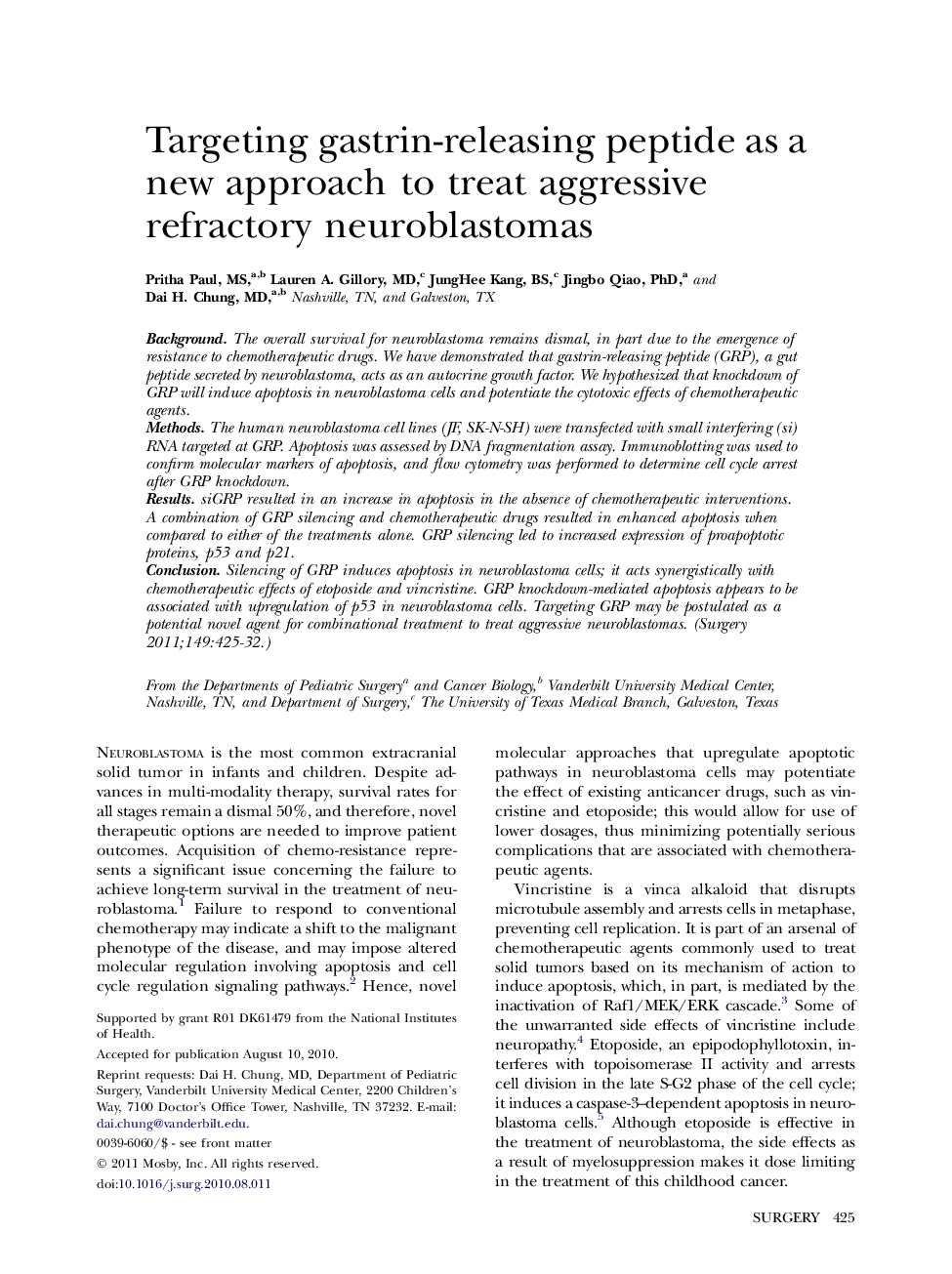| کد مقاله | کد نشریه | سال انتشار | مقاله انگلیسی | نسخه تمام متن |
|---|---|---|---|---|
| 4308178 | 1289272 | 2011 | 8 صفحه PDF | دانلود رایگان |

BackgroundThe overall survival for neuroblastoma remains dismal, in part due to the emergence of resistance to chemotherapeutic drugs. We have demonstrated that gastrin-releasing peptide (GRP), a gut peptide secreted by neuroblastoma, acts as an autocrine growth factor. We hypothesized that knockdown of GRP will induce apoptosis in neuroblastoma cells and potentiate the cytotoxic effects of chemotherapeutic agents.MethodsThe human neuroblastoma cell lines (JF, SK-N-SH) were transfected with small interfering (si) RNA targeted at GRP. Apoptosis was assessed by DNA fragmentation assay. Immunoblotting was used to confirm molecular markers of apoptosis, and flow cytometry was performed to determine cell cycle arrest after GRP knockdown.ResultssiGRP resulted in an increase in apoptosis in the absence of chemotherapeutic interventions. A combination of GRP silencing and chemotherapeutic drugs resulted in enhanced apoptosis when compared to either of the treatments alone. GRP silencing led to increased expression of proapoptotic proteins, p53 and p21.ConclusionSilencing of GRP induces apoptosis in neuroblastoma cells; it acts synergistically with chemotherapeutic effects of etoposide and vincristine. GRP knockdown-mediated apoptosis appears to be associated with upregulation of p53 in neuroblastoma cells. Targeting GRP may be postulated as a potential novel agent for combinational treatment to treat aggressive neuroblastomas.
Journal: Surgery - Volume 149, Issue 3, March 2011, Pages 425–432